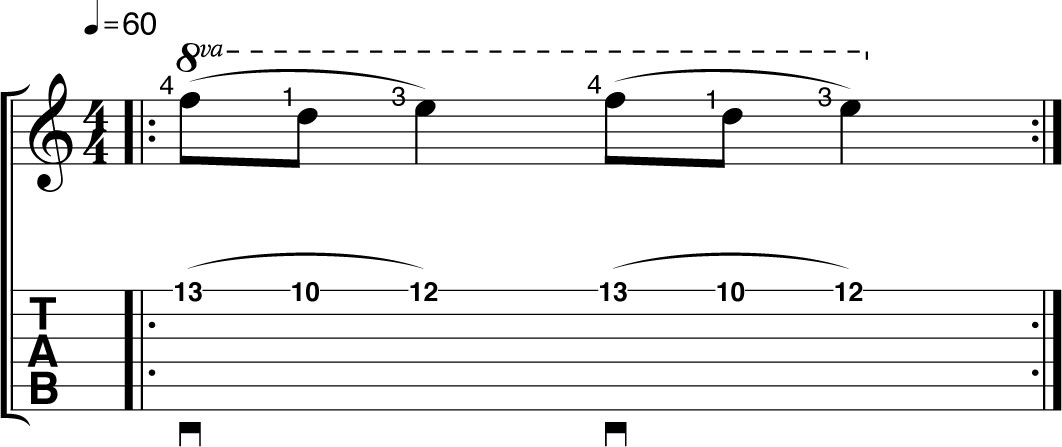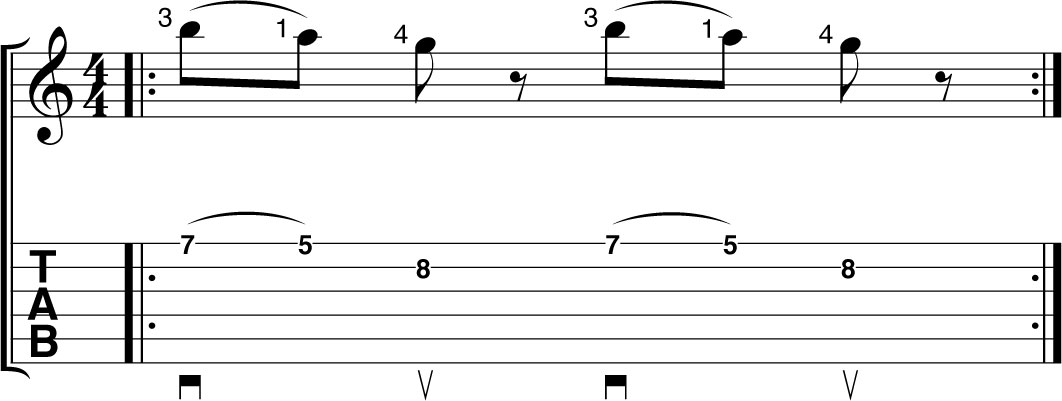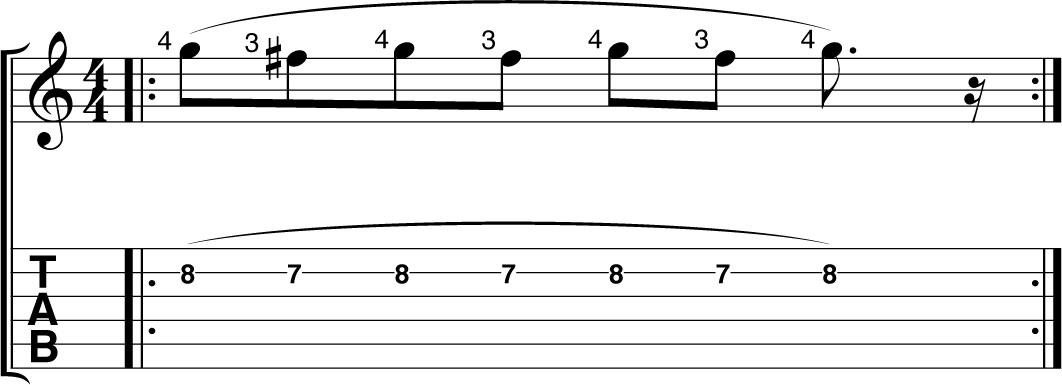Guitar lesson: improve your legato soloing quickly with these licks
Build your speed with our tutorial

Want all the hottest music and gear news, reviews, deals, features and more, direct to your inbox? Sign up here.
You are now subscribed
Your newsletter sign-up was successful
Guitar skills: Legato is an Italian music term meaning 'tied together', indicating that lines of notes should have a smoothly connected sound.
On the guitar, legato means that notes should be played with hammer-ons and pull-offs - a great way to bust out your most rapid licks without the added pressure of picking at speed.
Legato is most useful when there are multiple notes on one or two strings. The technique is almost synonymous with Joe Satriani, who explored the limits of legato on tracks including Surfing With The Alien. Players such as Steve Vai and Allan Holdsworth are also considered masters.
Benchmark test lick
Click on top right of tab to enlarge
Start this Joe Satriani-inspired lick slowly and aim to gradually increase tempo with each practice session.
Remember, this exercise is designed to challenge you, so make sure you persevere, even if your starting tempo is slower than you had hoped. Hone problem areas with the following legato practice exercises.
Essential tip
The key to rock-solid legato skills is making every note the same tone and volume.
Want all the hottest music and gear news, reviews, deals, features and more, direct to your inbox? Sign up here.
Work on fretting finger strength to make your hammer-ons and pull-offs louder, and play picked notes gently to make string changes inaudible. Start each exercise slowly and play to a metronome or drum loop for 30 seconds, before increasing your tempo in 5bpm steps.
Hammer-on then pull off
Repeat this small fragment of the benchmark lick and be sure to lift your third finger at the same time as your fourth finger lands.
Picking volume
Repeat this part of the benchmark to make picked notes sound at the same volume as pull-offs. Ideally, you shouldn't hear the string change.
Fourth finger dexterity
Alternate between your third and fourth fingers to develop independence. Focus on making all the notes the same volume.
Play it!
Now's the time to have some fun with the technique and apply legato to three different styles of music. The licks get faster, with more notes per beat.
The blues lick is phrased with three notes per beat, the rock lick is based on four notes per beat, and finally the challenging shred lick has six notes for every beat. The licks are designed to sound musical, so we've added other ideas such as vibrato and string bends.
Blues lick
Click on top right of tab to enlarge
This lick uses the A blues scale (A C D E b E G). Play the three notes on the third string with your first, third and fourth fingers, and the second-string note with your first finger.
Resist the temptation to barre with your first finger; moving from string to string will give you a cleaner sound.
Rock lick
Click on top right of tab to enlarge
This lick combines the A Dorian scale (A B C D E F# G) with the blues scale to produce a hybrid scale with these notes: A B C D Eb E F# G.
Focus on playing the notes as evenly spaced 16th notes, as well as keeping the picked notes and pull-offs at the same volume.
Shred lick
Click on top right of tab to enlarge
Learn the first six notes of this lick and repeat them at speed to create the entire lick.
Use your first, second and fourth fingers to make the stretch up to the 16th fret more manageable. After picking the first note, keep the lick going using only your fretting hand.
More guitar lessons
Total Guitar is Europe's best-selling guitar magazine.
Every month we feature interviews with the biggest names and hottest new acts in guitar land, plus Guest Lessons from the stars.
Finally, our Rocked & Rated section is the place to go for reviews, round-ups and help setting up your guitars and gear.
Subscribe: http://bit.ly/totalguitar







